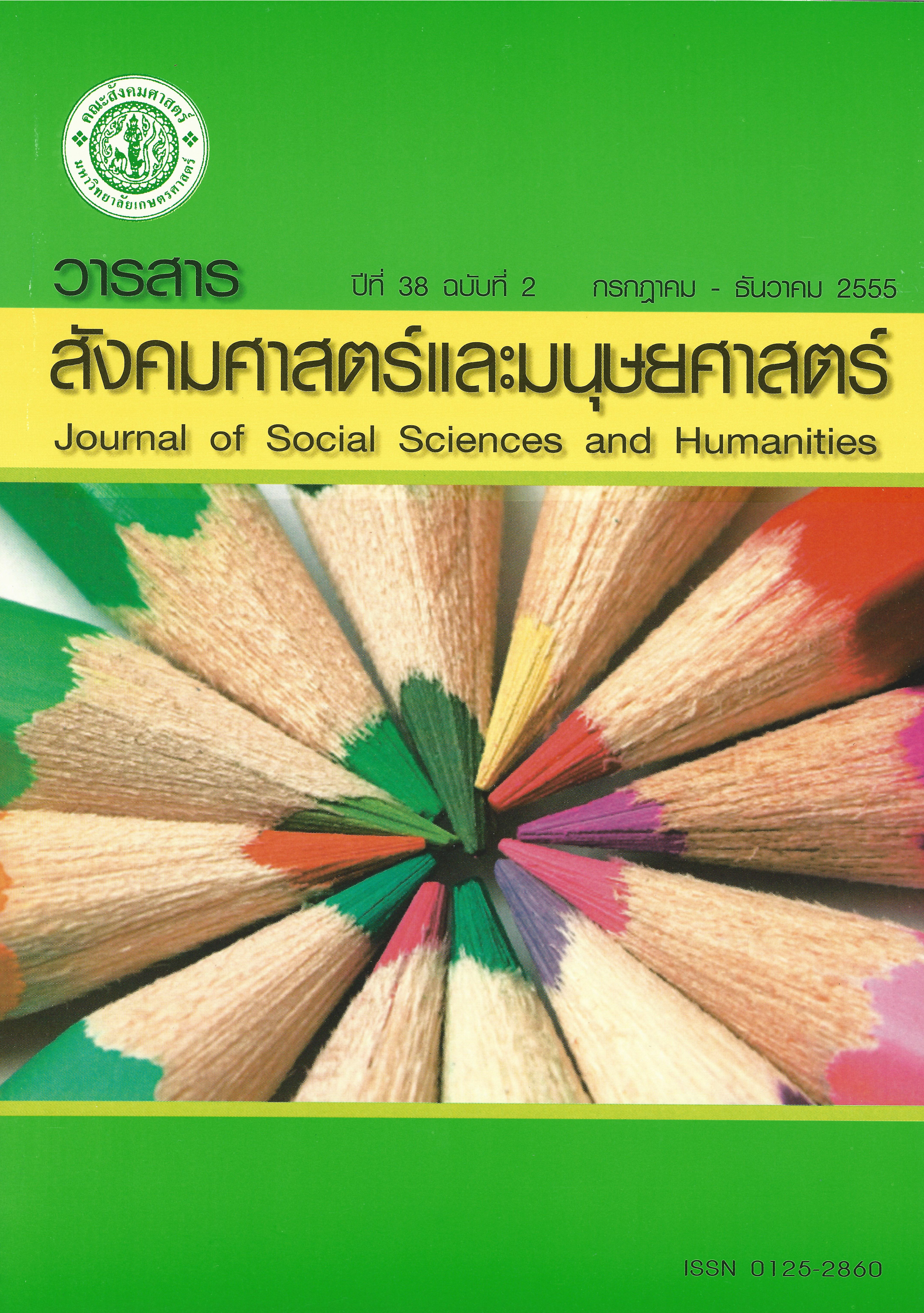ประสิทธิผลของนโยบายการบริหารจัดการตามหลักธรรมาภิบาลในมหาวิทยาลัยราชภัฏ
Main Article Content
บทคัดย่อ
การวิจัยนี้มีวัตถุประสงค์ดังนี้คือ 1) เพื่อศึกษาการกำหนดนโยบายการบริหารจัดการตามหลักธรรมาภิบาล 2) เพื่อศึกษาการนำนโยบายการบริหารจัดการตามหลักธรรมาภิบาลไปปฏิบัติ 3) เพื่อประเมินผลกระทบของการนำนโยบายการบริหารจัดการตามหลักธรรมาภิบาลไปปฏิบัติ และ 4) เพื่อศึกษาประสิทธิผลของนโยบายการบริหารจัดการตามหลักธรรมาภิบาล โดยใช้การวิจัยแบบผสานวิธีประกอบด้วยการวิจัยเชิงปริมาณ ซึ่งศึกษากลุ่มตัวอย่างที่เป็นกรรมการสภามหาวิทยาลัย จำนวน 137 คนที่ได้มาด้วยการชักตัวอย่างแบบหลายขั้นตอน เก็บข้อมูลโดยใช้แบบสอบถามแบบมาตราส่วนประเมินค่า 4 ระดับ มีค่าความเชื่อมั่น 0.971 วิเคราะห์ข้อมูลโดยใช้โปรแกรมสำเร็จรูปทางสถิติเพื่อหาค่าเฉลี่ย ส่วนเบี่ยงเบนมาตรฐาน ค่าสัมประสิทธิสหสัมพันธ์ และทดสอบสมมติฐานเชิงปริมาณด้วยการวิเคราะห์การถดถอยพหุคูณแบบขั้นตอน นอกจากนี้ผู้วิจัยได้ใช้การวิจัยเชิงคุณภาพโดยการสัมภาษณ์แบบเจาะลึกกรรมการสภามหาวิทยาลัย จำนวน 27 คน ที่ได้มาจากการเลือกแบบบอกต่อ วิเคราะห์ข้อมูลด้วยการแปลความและการตีความในการสรุปข้อมูลเพื่อการตอบวัตถุประสงค์การวิจัย1
ผลการวิจัย มีดังนี้ 1) การกำหนดนโยบายการบริหารจัดการตามหลักธรรมาภิบาลในมหาวิทยาลัยราชภัฏมีการปฏิบัติอยู่ในระดับมาก 2) การนำนโยบายการบริหารจัดการตามหลักธรรมาภิบาลไปปฏิบัติในมหาวิทยาลัยราชภัฏอยู่ในระดับมาก 3) การประเมินนโยบายการบริหารจัดการตามหลักธรรมาภิบาลในมหาวิทยาลัยราชภัฏมีผลกระทบอยู่ในระดับน้อย 4) ประสิทธิผลของนโยบายการบริหารจัดการตามหลักธรรมาภิบาลมีความสำเร็จในระดับน้อย 5) ผลการทดสอบสมมติฐาน พบว่า การกำหนดนโยบายธรรมาภิบาล การนำนโยบายธรรมาภิบาลไปปฏิบัติ และการประเมินผลกระทบนโยบายธรรมาภิบาลมีความสัมพันธ์ในเชิงบวกกับประสิทธิผลของนโยบาย
การสังเคราะห์ผลการวิจัย “การนำนโยบายธรรมาภิบาลไปปฏิบัติให้ประสบผลสำเร็จ” ที่ได้จาก ผลการศึกษาค้นคว้าใหม่นี้คือจะต้องมีจุดเน้นที่สำคัญ 4 ประการ เรียกว่า 3C+Lagwill Model ซึ่งประกอบด้วย 1) ความรู้ความสามารถของบุคลากรทุกฝ่ายในมหาวิทยาลัย 2) ความร่วมมือร่วมแรงและร่วมใจในการนำหลักธรรมาภิบาลไปปฏิบัติ 3) ระบบการสื่อสารในองค์กรที่ชัดเจนและมีประสิทธิภาพระหว่างสภามหาวิทยาลัย ฝ่ายบริหารมหาวิทยาลัย และบุคลากรมหาวิทยาลัย และ 4) มีการปฏิบัติตามกฎหมายที่เป็นธรรมต่อประชาคมมหาวิทยาลัยด้วยการนำหลักธรรมาภิบาลไปปฏิบัติในทุกขั้นตอน และที่สำคัญคือทุกฝ่ายต้องมีความมุ่งมั่นและจิตสำนึกเพื่อการปฏิบัติใน 3C+Lagwill อย่างแท้จริง
The Effectiveness of Good Governance Management Policy in the Rajabhat Universities
The objectives of this research were to study: 1) the formulation of good governance management policy, 2) the implementation of good governance management policy, 3) the impact of good governance management policy, and 4) the effectiveness of good governance management policy. The mixed research methods used in this study were in-depth interviews and questionnaires. A total of 137 members of the university council were selected using multi-stage sampling to participate in this study. The tool applied for the quantitative research was the four scale questionnaires which had the level of confidence of 0.971. The statistical devices used to analyze the questionnaires were the percentages, the mean, the standard deviation, and the correlation coefficient. In hypothesis testing, stepwise multiple regression analysis was also used. Twenty-seven members of the university council were selected with the snow-ball technique to participate in the in-depth interviews. The data from the interview were analyzed, translated, and interpreted in order to summarize the objectives of the study.
The findings were as follows. Firstly, the formulation of a good governance management policy performed was found to be at the high level. Secondly, the practices of good governance management policy in Rajabhat Universities wereaccepted by all parties at the high level. Thirdly, the impact of the implementation of good governance management policy in the universities was at the low level. And finally, the effectiveness of good governance management policy was at the low degree of success. The hypothesis testing found that policy formulation, policy implementation, and policy evaluation were positively correlated with and significantly able to predict the effectiveness of the policy at a high level (96%).
It was concluded from the synthesis of the findings that, the good governance management policy was put into practice successfully, and the universities had to focus on four key factors called 3C+Lagwill Model created by the researcher. The first three factors were the three Cs which were 1) the capacity or competency of all Rajabhat universities’ personnel, 2) the cooperation and the unity of the personnel in the practices of planning, monitoring and improving good governance principles, 3) the clear and effective communication systems in the organization between the university council, university administrators and universities’ personnel. Finally, there should be a rule of law (Lag) that is acceptable and fair to the university community which practiced the principles of good governance at all stages. Most importantly, all parties should truly be aware of and committed (Will) to the implementation of good governance using the 3C+Lagwill Model.


